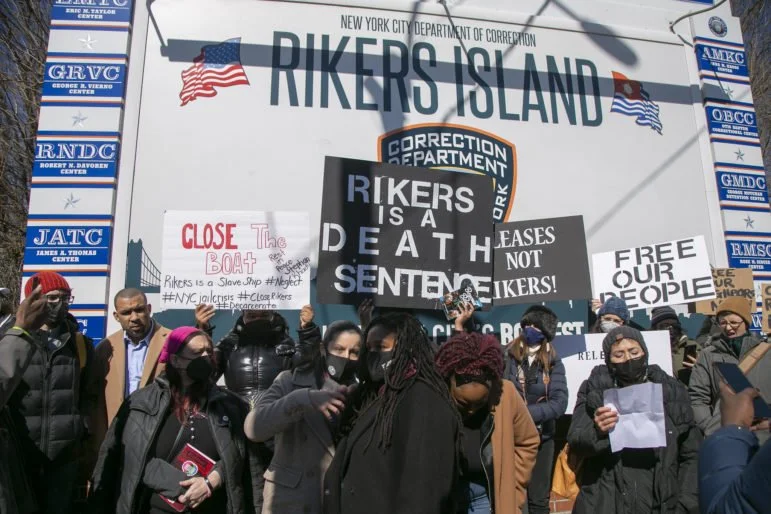CAMPAIGN LEADERS
HOPE SANDERS
"A little over 30 years ago, at 16 years of age, I was incarcerated on Rikers Island for 2 years. I am now on the Close Rikers advisory committee where I have a voice in ending years of trauma for individuals and families with the closure of Rikers."
Hope passed away in November 2023. We continue to be inspired by her courageous commitment to social justice.
Hope was incarcerated as a teenager, and spent 18 years on Rikers Island and in NYS prisons. She obtained her masters degree in social work from Columbia in 2023. She has also been appointed to the Advisory Committee established to oversee implementation of Renewable Rikers legislation.
MEDIA APPEARANCES
Q+A
1.) How are you connected to this movement?
I'm directly impacted by the criminal justice system. A little over 30 years ago, I was incarcerated on Rikers Island. I was 16, and I stayed on Rikers Island for two years. And I see the conditions that exist today, those are the same conditions that existed 30 years ago. I did almost 20 years’ incarceration and so I've seen how the criminal justice system has locked people away unjustly, just because they're poor, that they're not economically stable. And I was really, really aggravated, and I wanted to do something, I really, really want to do something. And I found that the best thing was for me to be active. I'm engaging with people and being in the rooms of the people that make the change. Sarita [at Freedom Agenda] nominated me to be on the close Rikers advisory board, Renewable Rikers, to the city council, and they confirmed me, so I'm happy that I'll be able to literally sit in the rooms with these people, and speak from my experience, and let them know how wrong they are, and what would work.
2.) Why should Rikers close?
It’s a hellhole, where people are dying from pure negligence. It's a place where people aren't allowed the basic needs. Clothing, shelter, warmth, right? These are the things that we require for health. And all of these things are failing. It's not helping, it's not helping. If this is supposed to be a place that I would say would rehabilitate, or perhaps I can't even say rehabilitate because a lot of people are there and they aren't even charged - so if this will be a place where you're just holding someone, then you would want to protect them if they're in your care. And this is a pure failure. I mean, it's sitting on the top of a toxic dump.
And not to mention, it's ruining our communities. Because these are the people, the men and women that are incarcerated, that are coming back to our communities. And you don't want people to come back out here with PTSD. We already have issues with mental health disorders, especially with Covid.
3.) What is your vision for a more just and equitable post-Rikers New York City?
I still suggest that they tackle the root causes of the problems of crime. That would be poverty. That would be homelessness. It would be substance misuse, which is also a disease in itself. We would also have to talk about racial injustice. There's so many institutions that we will have to tackle.
A lot of my communities, we don't have resources. At this point, it's time to change the system. The whole system needs to be overhauled, overdone, done over, whatever they have to do, it needs to stop and it needs to change, but they do need to recognize and address the root causes of a lot of the crime that goes on - it's not just because people want to do it. Nobody wants to rob a bank, they want the money. The vision I see would be a more humane way of dealing with these root causes of the crime in a lot more humane way, not just locking people up in cages.







